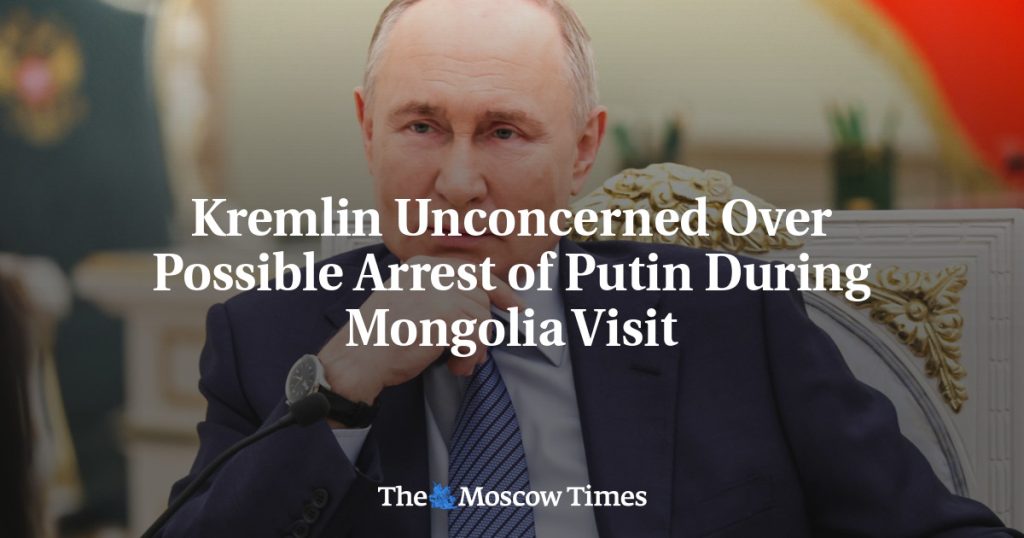The Kremlin has stated that it is not concerned about the possibility of President Vladimir Putin being arrested during his upcoming visit to Mongolia, despite an arrest warrant issued for him by the International Criminal Court (ICC) last March. This warrant was issued over the illegal deportation of Ukrainian children to Russia. Putin’s visit to Mongolia will be his first to an ICC member state since the warrant was issued. Kremlin spokesman Dmitry Peskov reassured reporters that there were no worries about the situation, emphasizing that Russia has a strong dialogue with Mongolia.
Even though Mongolia is a signatory of the Rome Statute, the treaty that governs the ICC and technically obligates member states to comply with arrest warrants issued by the court, it is unlikely that Ulaanbaatar would detain Putin. This is due to Mongolia’s long-standing alliance with Moscow and its neutral stance on the Ukraine conflict. Peskov mentioned that all aspects of Putin’s visit to Mongolia have been carefully prepared, indicating that discussions may have taken place regarding the arrest warrant. Interestingly, a similar situation occurred in the past when South Africa, also a Rome Statute signatory, sought an exemption to allow Putin to attend a summit. Putin decided to skip the event in that instance.
The situation highlights the complexities and diplomatic considerations surrounding international arrest warrants issued by the ICC. Despite the legal obligation of member states to comply with such warrants, political alliances and neutral stances can play a significant role in determining whether a leader would be detained. The case of Putin’s potential arrest in Mongolia is an example of these dynamics at play, with the Kremlin expressing confidence in its dialogue with Mongolia and the unlikelihood of any issues arising during Putin’s visit.
The arrest warrant issued against Putin by the ICC is related to the deportation of Ukrainian children to Russia, a controversial move that has led to international condemnation. The warrant adds to the existing tensions between Russia and the international community, particularly over its actions in Ukraine. While the warrant itself is a significant development, the response from both the Kremlin and Mongolian authorities indicates that the situation is being managed diplomatically, with assurances given that there will be no issues during Putin’s visit.
Overall, the upcoming visit of President Putin to Mongolia raises questions about the enforcement of ICC arrest warrants and the role of political considerations in such situations. The Kremlin’s confidence in its relationship with Mongolia and Mongolia’s neutral stance on the Ukraine conflict suggest that the warrant issued by the ICC may not have a practical impact on Putin’s visit. However, the warrant itself serves as a reminder of the ongoing tensions between Russia and the international community, particularly in light of its actions in Ukraine. The situation will continue to be monitored for any developments during Putin’s visit to Mongolia.














